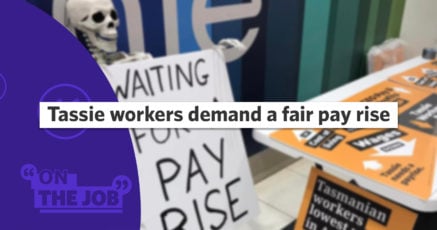The COVID-19 recession has been an economic calamity for millions of Australian women and its impact on their financial wellbeing could linger for decades to come according to a new report released by the Grattan Institute.
“Women’s work: the impact of the COVID crisis on Australian women” report was released to coincide with International Women’s Day 2021, and it paints an alarming portrait of the lopsided impact on women’s economic status due the pandemic.
The headline numbers are startling and alarming for Australian women:
- They lost more jobs than men – almost 8 per cent at the peak of the crisis, compared to 4 per cent for men
- They shouldered more of the increase in unpaid work – including supervising children learning remotely – taking on an extra hour each day more than men, on top of their existing heavier load; and
- They were less likely to get government support – JobKeeper excluded short-term casuals, who in the hardest-hit industries are mostly women.
Danielle Wood, CEO of the Grattan Institute, spoke with On the Job following the release of the report and said that many of the Morrison Government’s policies in response to the COVID-19 crisis further contributed to disadvantaging women. This was compounded by the transformation of our homes into workspaces and classrooms.
“Women were more likely to lose their jobs and have their hours cut at the height of the downturn,” Ms Wood said.
“There was a big rise in unpaid work, particularly around remote learning, and women shouldered a disproportionate burden on top of what’s already a higher load of care work for women.
“Women were also more likely to miss out on government support. That was partly because of design choices like JobKeeper that excludes short-term casuals, and a lot more women in sectors like hospitality and arts and education are in short-term casual work.”

The shift to home-based working and learning further entrenched already stubbornly ingrained gender-biased domestic workloads as well.
“There was a big increase in unpaid care work, partly because of remote learning, but also because of the loss of informal support networks due to social distancing restrictions,” explained Ms Wood.
“Women did about an hour extra work on average per day, compared to men, and that was on top of what’s already a much higher share of that unpaid work.
“For a lot of women, they found that juggle incredibly difficult and you see that in declining rates of workforce participation.
“We saw a lot of women pulling out of study, so 25 to 34-year-old women were the group most likely to pull out of university studies (along with international students). All of that contributes to the long tail effects for women,” she said.
Ms Wood was adamant that the provision of universal, free early education and childcare remains one of the most effective ways to redress the gender imbalance in the economy which has again been underlined by the COVID-19 downturn.
“It is one of the most important policy levers we have. If the Government is genuine about wanting to build back better, then looking to childcare is a really obvious policy area.
“We have really high out of pocket costs for early education care in this country compared to other nations. That means that it’s not accessible for a lot of families.
“We know there are early learning benefits particularly for children of disadvantaged backgrounds to get access to high-quality care, but it also is a major impediment to women’s workforce participation and for a lot of women there’s just no point in them going back to work if they have a young child because the out-of-pocket child care costs end up eating up almost all of their additional income,” she said.
The design of stimulus measures aimed at kickstarting the economy also further exacerbated the situation according to the Grattan Institute CEO.
“A lot of the direct support that went into certain sectors tended to favour those in what I call the hardhat sectors – manufacturing, construction, facilities, as opposed to the service sectors that are really hurting this downturn.”
Ms Wood said there needs to be a smarter approach to designing policy responses to deal with economic challenges, one that takes into account the very specific needs of Australian women.
“I would love to see them [the Government] do more of a gender distribution analysis. We used to have gender budgets in this country, up until the last decade or so. What that does is allow us to identify policies that are impacting women differently,” Ms Wood told On the Job.
“I think what we really need to think about is just how we do stimulus in a service economy. The temptations are to just go back to the old playbook and rollout some transport infrastructure spending. That might have been fine in the 70s but in a world where 80% of jobs are in services, you are not going to get a broad-based economic recovery that way.
“We need to do more thinking about how we ramp up spending on services sectors in a recession in order to create jobs and deliver something as long-term social value.”
The Grattan Institute’s report finding were backed by Australian Union’s own report into the challenges faced by working women in Australia.
The ‘IWD 2021 – Reality Check for Australian Working Women’ report details the fall in Australia’s ranking on gender pay equity, the continued gender segregation of the workforce and the impact of COVID on women workers.
Launching the report yesterday, ACTU President Michelle O’Neil told ABC News Breakfast, “Women were already more likely before the pandemic to be in insecure work and paid less. The pandemic has just cemented that disadvantage.”
Like Ms Wood, Ms O’Neil is calling on the Government to do more to address these disadvantages.
“The Governments IR Omnibus Bill will make gender inequality in workplaces worse,” she said.
“We have the balance wrong here. The Bill will give more power and flexibility to employers, but it’s women who need more power and flexibility.”







SHARE:
Women hit hard by COVID recession